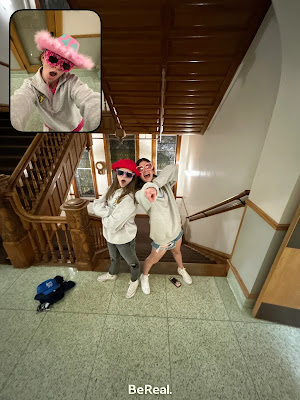Hi everyone! My name is Taylor Mularski and I’m from lovely Spokane, Washington. Currently, I am a kinesiology major with a leadership studies minor partnered with a few concentrations that will prepare me to work with refugee populations in the future. I am on the golf team here at Gonzaga, and you can always find me diving into competition: volleyball, Spikeball, skiing, bowling, card games, trivia, bingo etc. Additionally, I enjoy anything that brings out people’s inner child, whether it is dancing, dressing up, running and playing games, or being silly with one another. If you see me on campus, I might have golf clubs poking out of my backpack or a hammock when the sun is out. I am probably speed walking from one thing to the next as a result of my chronic over-scheduling problem. Of course, I am also a Seton, which has made my sophomore year immensely better than I would have expected.




Comments
Post a Comment